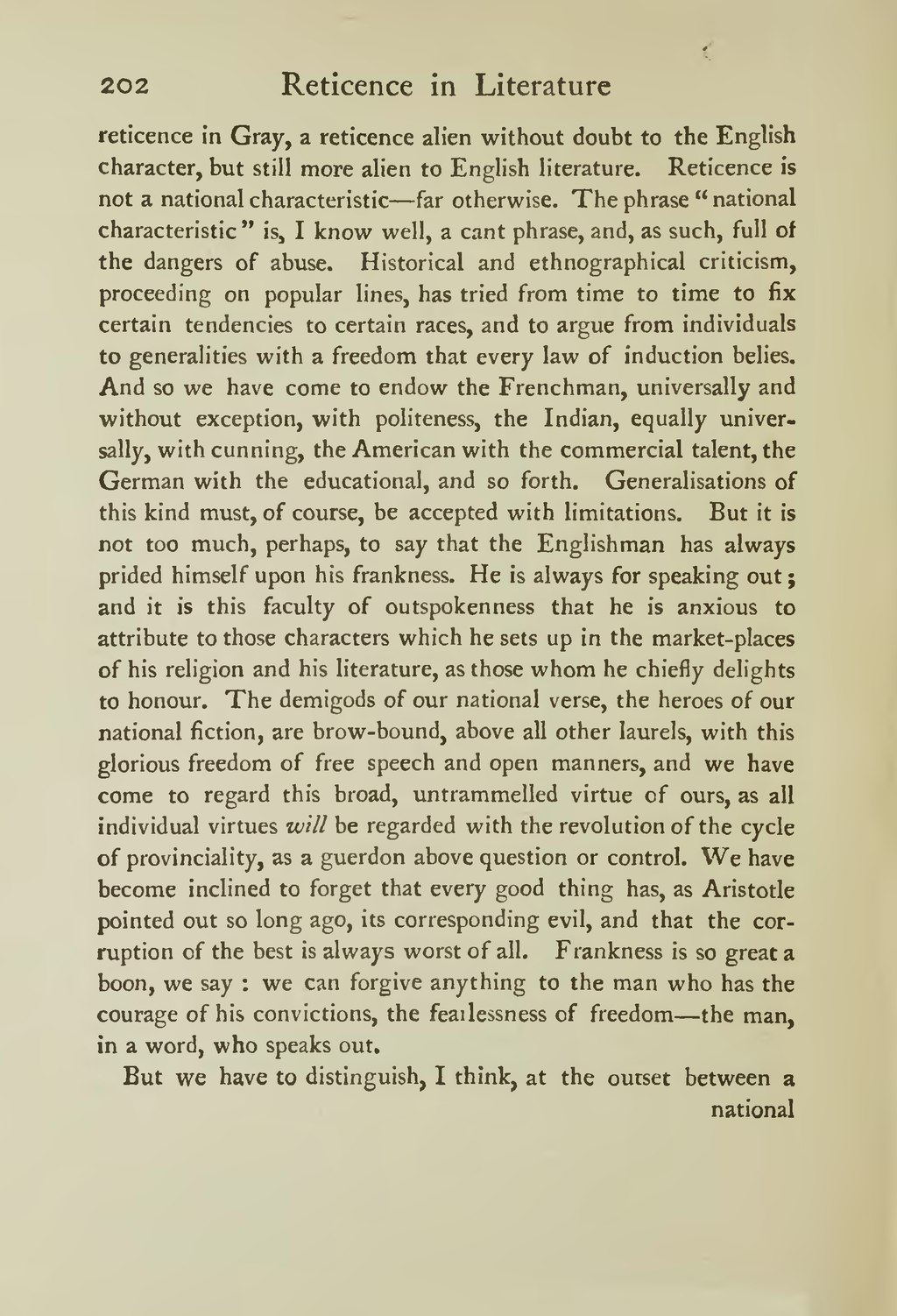reticence in Gray, a reticence alien without doubt to the English character, but still more alien to English literature. Reticence is not a national characteristic—far otherwise. The phrase "national characteristic" is, I know well, a cant phrase, and, as such, full of the dangers of abuse. Historical and ethnographical criticism, proceeding on popular lines, has tried from time to time to fix certain tendencies to certain races, and to argue from individuals to generalities with a freedom that every law of induction belies. And so we have come to endow the Frenchman, universally and without exception, with politeness, the Indian, equally universally, with cunning, the American with the commercial talent, the German with the educational, and so forth. Generalisations of this kind must, of course, be accepted with limitations. But it is not too much, perhaps, to say that the Englishman has always prided himself upon his frankness. He is always for speaking out; and it is this faculty of outspokenness that he is anxious to attribute to those characters which he sets up in the market-places of his religion and his literature, as those whom he chiefly delights to honour. The demigods of our national verse, the heroes of our national fiction, are brow-bound, above all other laurels, with this glorious freedom of free speech and open manners, and we have come to regard this broad, untrammelled virtue of ours, as all individual virtues will be regarded with the revolution of the cycle of provinciality, as a guerdon above question or control. We have become inclined to forget that every good thing has, as Aristotle pointed out so long ago, its corresponding evil, and that the corruption of the best is always worst of all. Frankness is so great a boon, we say: we can forgive anything to the man who has the courage of his convictions, the fearlessness of freedom—the man, in a word, who speaks out.
But we have to distinguish, I think, at the outset between a
